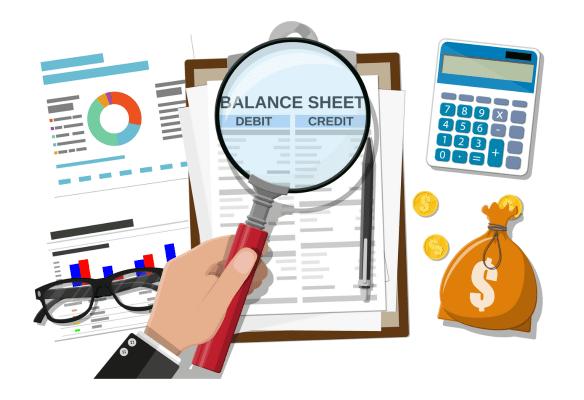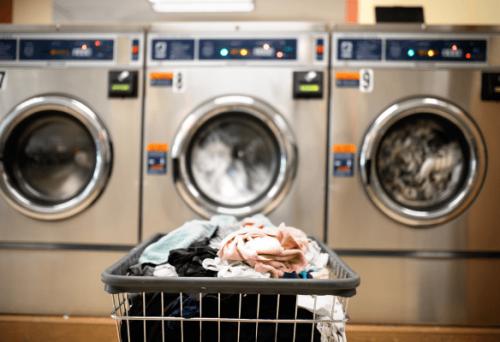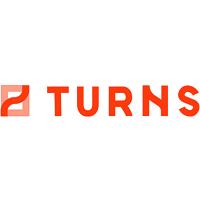Key Questions to Ask Before Investing in a Laundromat: 10 Must-Know Tips for Smart Buyers

Purchasing
a laundromat is a significant investment, and making the right decision
requires careful planning. At Turns, we work closely with laundromat owners
nationwide, providing us with invaluable insights into the industry's daily
operations, challenges, and opportunities. With our experience, we understand
the unique hurdles laundromat owners face, such as managing equipment,
controlling utility costs, and maintaining customer loyalty. Our mission is to
help future laundromat owners make smart, informed choices that lead to
long-term success.
If
you're considering purchasing a laundromat, asking the right questions is
critical to avoid potential pitfalls and maximize growth opportunities. In this
blog, we’ve outlined 10 essential questions to guide you through the
decision-making process, whether you're a first-time buyer or looking to expand
your business.
10 Essential Questions to Ask Before Purchasing a Laundromat
1.
What is the current financial performance of the business?
The
first step is to evaluate the laundromat’s financial health by reviewing its
revenue, operating expenses, and profits. A thriving laundromat can generate
between $33,000 and $110,000 in annual income, depending on its location and
size. To get a clear picture, examine profit-and-loss statements, tax returns,
and other financial documents.
A
significant part of assessing
a laundromat’s financial status includes understanding its recurring
costs. Utility bills—often the largest expense—usually range between $2,200 and
$4,400 per month. As for the overall investment, the cost of purchasing a
laundromat can vary widely, typically falling between $220,000 and $550,000,
covering equipment, renovations, and leases.
For
those wondering, “how much does it cost to run a laundromat?” the monthly
operating expenses generally range from $5,500 to $16,500, depending on the
number of machines, energy efficiency, and location. By factoring in additional
revenue from services like wash-and-fold or vending machines, you can better
estimate your return on investment (ROI) and potential earnings.
2.
What is the condition and age of the equipment, and what are the maintenance
costs?
The
condition of the laundromat’s equipment is key to controlling operating costs
and maintaining customer satisfaction. Older machines tend to break down more
often, increasing repair costs and downtime. Newer, energy-efficient machines
(typically under 10 years old) can significantly lower utility bills and
require fewer repairs.
A
well-maintained commercial washing machine has a lifespan of around 11–16
years. Maintenance costs can vary, but annual expenses for repairs can range
from $550 to $5,500 per machine. When evaluating industrial laundry machines,
make sure to assess their durability and repair history to estimate future
maintenance costs.
If
the laundromat uses coin-operated machines, ensure that the coin converters and
other equipment are functioning properly. Whether you're using a coin washing
machine or a card-based system, having a clear maintenance and replacement plan
will help avoid costly surprises.
3.
What are the lease terms, including rent, duration, and renewal options?
The
profitability of a laundromat often hinges on its lease terms. A favorable
lease typically includes affordable rent, a long-term agreement (5–10 years),
and renewal options. Rent for laundromats typically falls between $2,200 and
$6,600 per month, depending on the location.
When
searching for a building for lease or a laundromat for rent near you, carefully
review the lease terms to avoid potential issues like unexpected rent hikes or
restrictions on equipment upgrades. Whether you're signing a coin laundry lease
or any other agreement, a prime location with high foot traffic is essential
for maximizing revenue.
4.
Why is the current owner selling the business?
Understanding
the seller’s motivation is essential when considering purchasing a laundromat.
Common reasons for selling include retirement, relocation, or a shift in career
focus. However, if the sale is due to declining revenue or increasing
competition, it’s important to investigate further.
Don’t
just focus on the purchase price when evaluating the cost of buying a
laundromat—look at ongoing expenses such as utilities, equipment maintenance,
and lease terms. Asking the right questions will help you decide if buying a
laundromat is truly worth it in the long run.
5.
What are the monthly utility costs for water, electricity, and gas?
Utility
bills are one of the biggest ongoing costs for laundromats, often accounting
for 20-30% of total expenses. The answer to "how much do utilities
cost" depends on various factors, such as machine count, hours of
operation, and energy efficiency. Typically, laundromats spend between $2,200
and $5,500 per month on water, electricity, and gas, making energy-efficient
machines a valuable investment.
By
addressing these questions before purchasing
a laundromat, you can better understand the potential challenges and
opportunities ahead, positioning your business for long-term success.
Source: Purchasing a Laundromat: 10 Essential Questions You Must Ask Before Investing



Comments (1)
vclub
6
Don’t just focus on the purchase price when evaluating the cost of buying a laundromat—look at ongoing expenses such as utilities, equipment maintenance, and lease terms. Asking the right questions will help you decide if buying a laundromat is truly worth it in the long run.